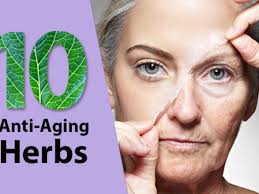Friday, November 20, 2020
Thursday, October 22, 2020
6 Tips to Jump-Start Your Weight Loss
6 Tips to Jump-Start Your Weight Loss
Come up with some sort of daily saying/affirmation, write it down, and recite it when you're feeling like you might be getting off track. Lindsey Lorraine has nailed it with her 3-part mantra.
- Give yourself credit. Stop putting yourself down, and give yourself credit for the things you succeed at. Even if it's small things like giving yourself credit for eating half the bag of chips. Give yourself credit.
- Find balance. There has to be flexibility in your life. You won't lose weight every week, and you will lose lots of weight some weeks. You have to find a balance in what you do and eat.
- Strive for progress, not perfection. Try just doing a little more than last week. Even if you do one push up the entire week, well, that's probably one more push up than the week before. You have progressed :)
It helps to visualize what you eat and do day-to-day so you have a better understanding of what works on your journey. Carmen Leon says keeping a record of her meals has been enlightening. "I find that meal planning is everything...[and] I also keep a food diary. I write down everything I eat, my exercise for the day...this has helped me so much as well." Accountability is important, and keeping a written record goes a long way towards achieving your goals.
"To thine own self be true." Know your limitations, your weaknesses, your pitfalls...and make peace with them. Community member Elyssia Marshall Mathias says this is vital.
Anne Ritchie says that having support and encouragement from others trying to reach weight loss goals has been paramount to her own success. "The thing that helped me the most in my weight loss journey is this wonderfully supportive group of people. And it's a great 'diet.' Really it's a lifestyle change so sometimes it's tough in the beginning to rearrange your thinking about how we cook and what we eat. But that's where this group comes in. We are all doing the same thing!"
Contrary to certain products and services that have cropped up over the years, there's no such thing as a quick-fix when it comes to weight loss. Cooking Light Diet member Ann Marie Mantoine Shuler stresses that you have to embark on the journey one step at a time.
Saturday, October 17, 2020
4 Reasons You're Not Losing Weight
4 Reasons You're Not Losing Weight on the Keto Diet, According to Nutritionists
You’re not actually in ketosis
You’re eating too much protein
You’re overlooking hidden carbs
Your daily calorie intake is too high
Saturday, October 3, 2020
MENTAL HEALTH
MENTAL HEALTH
Growing a mustache or beard is fun, but the symbolism behind it is what this month is all about.
November Community Development Manager Keith Sexton says it's to raise awareness and build a support system for men battling cancer,
a mental health illness or something else.
"Most men aren't doing anything about their health, they're not taking action, they're not talking about anything and they're dying too young.
On average, men die about six-years younger than women and it's really mostly from preventable causes," Sexton said.
Sexton says three out of every four suicides are men
taking their own lives.
"We're losing one man a minute across the globe," Sexton said.
Growing a mustache or a beard is the most popular way to show support for men battling cancer or a mental health issue, but not everyone can do so.
Sexton says there are other ways both men and women can support the cause.
"We have a challenge called the moo challenge which is all about running or walking 60-miles throughout the month of November which represents the 60-men
that take their own lives every hour," Sexton said.
Sexton says you could also host an event like breakfast at work, a pot-luck dinner or even a corn hole tournament, all great ways, he says, to support the cause and get involved.
Another one of those ways to show support is to be a listening ear.
"For men, it's all about opening up a little bit and seeking that help when it's needed," Sexton said.
"When it comes to mental health, if you are feeling down and having some issues talk it out with a trusted friend.
For everyone else, if you notice a man in your life that might need some help be open to listening to him and hearing him out. You don't need to solve the problem you just have to be there and listen to him and that could mean the world to somebody and make a huge difference in someone's life."
WHY MEN’S HEALTH AWARENESS MONTH (NOVEMBER) IS SO IMPORTANT
There is this fear or macho-man attitude many men have about getting checked by a doctor for cancer, a mental health disorder or something minor in comparison.
"When it comes to prostate and testicular cancer, they're actually very curable if they're caught early enough and so we really want to encourage men to make sure they are checking themselves or going to the doctor for that," Sexton said.
With mental health, it's about being there and encouraging someone going through a rough patch to talk about it.
"It's trying to get rid of that stigma that men can't be vulnerable and can't express their feelings and talk to somebody," Sexton said.
He said talking about your feelings takes more courage but helps more than burying them deep within.
IN NOVEMBER, HELP MEN FIGHT CANCER — THE BEST CHARITIES & HOW TO DONATE
November is a separate movement and organization than No-Shave November but both raise awareness about the causes on display this month.
"The November Foundation is the leading charity dedicated to changing the face of men's health in the U.S. and around the world," Sexton said. "We really want men to live happier, healthier longer lives and we're doing that by investing in three critical areas which are prostate cancer, testicular cancer and mental health and suicide prevention."
Thursday, September 24, 2020
This Is the Best Anti-Aging in-20 According to Science
 This Is the Best Anti-Aging in-20 According to Science
This Is the Best Anti-Aging in-20 According to Science
You're already using anti-aging moisturizers and anti-aging eye creams–is it time to adopt an anti-aging workout, too?  A new study published today in the journal European Heart Journal says when it comes down to the anti-aging effects of exercise, cardio is queen.
A new study published today in the journal European Heart Journal says when it comes down to the anti-aging effects of exercise, cardio is queen.
 Endurance exercise–like running, swimming, or bicycling–and high-intensity interval training (HIIT) both slowed signs of aging compared to lifting weights–at least on the cellular level.Here’s how the study went down: A team of German researchers divided 124 healthy but inactive adults between the ages of 30 and 60 into four groups.
Endurance exercise–like running, swimming, or bicycling–and high-intensity interval training (HIIT) both slowed signs of aging compared to lifting weights–at least on the cellular level.Here’s how the study went down: A team of German researchers divided 124 healthy but inactive adults between the ages of 30 and 60 into four groups.
 One group carried on with their non-existent exercise routines. The other three sweated it out for 45-minute sessions three times a week for 26 weeks.The endurance training group walked or ran continuously. The HIIT group completed a warmup, four rounds alternating between faster and slower running, and a cool down.
One group carried on with their non-existent exercise routines. The other three sweated it out for 45-minute sessions three times a week for 26 weeks.The endurance training group walked or ran continuously. The HIIT group completed a warmup, four rounds alternating between faster and slower running, and a cool down.
 The resistance training group used eight different strength-training machines to complete a circuit of exercises including seated chest presses, lat pulldowns, and leg presses.At the end of the study, people in both the endurance training and the HIIT groups had experienced anti-aging effects of their workouts, while the inactive and resistance training groups did not.
The resistance training group used eight different strength-training machines to complete a circuit of exercises including seated chest presses, lat pulldowns, and leg presses.At the end of the study, people in both the endurance training and the HIIT groups had experienced anti-aging effects of their workouts, while the inactive and resistance training groups did not.
 Those turn-back-the-clock effects were measured at the cellular level, by examining white blood cells from blood taken before the start of the study and days after the final exercise session.
Those turn-back-the-clock effects were measured at the cellular level, by examining white blood cells from blood taken before the start of the study and days after the final exercise session.
In those cells from runners and HIIT-ers, researchers noted two important changes: Their telomeres–the caps at the ends of chromosomes–lengthened, and telomerase–an enzyme involved in maintaining those caps–increased.
 These effects “are both important for cellular aging, regenerative capacity, and thus, healthy aging,” study author Ulrich Laufs, MD, of Leipzig University in Germany, said in a statement.Telomeres naturally shrink over time, and as they do, cells die instead of continuing to divide. Cell death is bad news not just for wrinkles and gray hair, but for risk of age-related health concerns like heart disease, cognitive decline, and even early death.
These effects “are both important for cellular aging, regenerative capacity, and thus, healthy aging,” study author Ulrich Laufs, MD, of Leipzig University in Germany, said in a statement.Telomeres naturally shrink over time, and as they do, cells die instead of continuing to divide. Cell death is bad news not just for wrinkles and gray hair, but for risk of age-related health concerns like heart disease, cognitive decline, and even early death.
 So what was it about endurance and HIIT workouts that could stave off that shrinkage? The researchers hypothesize that those types of exercise affected levels of nitric oxide in the blood. Since nitric oxide increases blood flow and lowers blood pressure, it could in turn have affected the cell changes found in these two groups of participants.
So what was it about endurance and HIIT workouts that could stave off that shrinkage? The researchers hypothesize that those types of exercise affected levels of nitric oxide in the blood. Since nitric oxide increases blood flow and lowers blood pressure, it could in turn have affected the cell changes found in these two groups of participants.

This isn’t the first study to link exercise to telomere length. A team from Brigham Young University found that adults who jogged for 30 to 40 minutes five times a week had telomeres as long as those of people who were 9 years younger than them, for example. And HIIT workouts have been previously linked with additional anti-aging cellular changes. The new study, however, is thought to be the largest ever to directly compare the anti-aging effects on telomeres of different types of exercise.
 However, according to an accompanying editorial published alongside the study, this research doesn't necessarily mean one workout or the other is better for your physical fitness. “The authors reported that changes in telomere length were not associated with changes in cardiorespiratory fitness,” write the editorial authors, of Newcastle University in the UK.
However, according to an accompanying editorial published alongside the study, this research doesn't necessarily mean one workout or the other is better for your physical fitness. “The authors reported that changes in telomere length were not associated with changes in cardiorespiratory fitness,” write the editorial authors, of Newcastle University in the UK.
 Further studies are needed, they say, to clearly understand the link between telomere length, telomerase activity, and disease prevention.In the meantime, don’t go giving up your strength sessions. These results fall nicely in line with common exercise recommendations. “Our data support the European Society of Cardiology’s current guideline recommendations that resistance exercise should be complementary to endurance training rather than a substitute,” study co-author Christian Werner, MD, of Saarland University in Germany, said in a statement.
Further studies are needed, they say, to clearly understand the link between telomere length, telomerase activity, and disease prevention.In the meantime, don’t go giving up your strength sessions. These results fall nicely in line with common exercise recommendations. “Our data support the European Society of Cardiology’s current guideline recommendations that resistance exercise should be complementary to endurance training rather than a substitute,” study co-author Christian Werner, MD, of Saarland University in Germany, said in a statement.
 Same goes for recently updated exercise guidelines for Americans, which suggest getting 150 to 300 minutes of moderate intensity aerobic physical activity per week, as well as at least two sessions of muscle-strengthening activity.
Same goes for recently updated exercise guidelines for Americans, which suggest getting 150 to 300 minutes of moderate intensity aerobic physical activity per week, as well as at least two sessions of muscle-strengthening activity.
www.playgamesnews.com
www.playgamesnews.com







